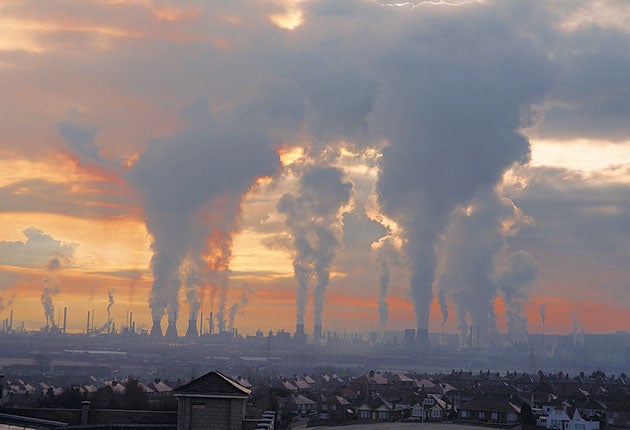The climate change sceptics are winning - and the environmental lobby only has itself to blame
For all the Nobel prizes and predictions of global apocalypse and preaching to the converted, climate change remains a niche issue

For the first time in five million years the proportion of carbon dioxide molecules in the Earth’s atmosphere has reached 400 parts per million (ppm).
While even the most sensitive photosynthesising organism would have no idea at all, the environmental movement has recognised this milestone is a ‘moment of symbolic significance on [the] road of idiocy’; indicative of the lacklustre commitment and unwillingness of governments, businesses and the public to embrace the necessary change. In short, inaction against climate change is everybody else’s fault.
Yet for all the Nobel prizes and predictions of global apocalypse and destruction, climate change is still a niche issue. The environmental movement has failed to capture the public’s imagination or to engage and inspire them to demand a green agenda from their governments.
Despite the overwhelming scientific evidence, public opinion of the issue is ambivalent. The UK is the most climate sceptic country in Europe (only 18 per cent is ‘very worried’ about climate change) and public concern about climate change has plunged since the failure of inter-governmental talks in Copenhagen in 2009.
More ominously, however, it seems that the scientific, civil and environmental lobbies are left preaching to the converted rather than winning the battle for public opinion. Whilst the influence of well-organised and well-funded climate sceptic groups increases.
The fact that climate-sceptic arguments continue to be heard would be laughable if it wasn’t so serious. But they have taken on the fight, muddying the science at every opportunity, creating confusion and doubt.
Tabloid newspapers have also become mouthpieces for the sceptics. Their on-going, daily onslaught against the science of climate - which David Rose in the Mail on Sunday labelled ‘The Great Green Con’ - is influential and damaging.
Without an honest, open and inclusive discussion, which re-engages the public about the reasons to act against climate change; there will never be the necessary political will for the tough choices that are needed.
The Government will continue to cling to business as usual, to the detriment of climate policy, maintaining the view of George Osborne that: "We are not going to save the planet by shutting down our steel mills, aluminium smelters and paper manufacturers.”
But what George seems to ignore is that we might just save it, and create jobs and growth at the same time, by giving the green economy the support it needs. Right now however, uncertainty and government indecision are deterring investment and threatening the remarkable positives - that despite lack of government support, and during a recession, the low carbon economy grows at 4 per cent and is accounts for one third of all growth in the economy.
So what can be done? Changing the orthodoxy of the government, against a hostile media is no easy feat. Lobbyists for big business have louder voices in the ears of policy-makers and the cost of the gas bill is usually more persuasive than the plight of the polar bear. The green movement must re-evaluate what is working, and what needs to be done to get the public back on side.
Energy bills are a major concern for the public. Decoupling the preconception that energy bills are rising due to green policies is imperative (Green policies account for 6 per cent of the average gas bill and 11 per cent of electricity bill). But as well as debunking myths and celebrating positives, it’s necessary to re-energise the public with the importance of action. There is a need to simplify the science and speak with a more united voice, to convey better what a 2 C degree rise in temperature really means, and the dire consequences of a rise higher than this. It is important to engage with the public better and more inclusively, including via less traditionally friendly media, such as The Daily Mail to justify tough choices and convince the public that inaction will be much costlier.
For many in the know, 400ppm is another sleepwalking step towards catastrophe. New stories emerge every day around the world of decision makers choosing to ignore Climate Change as an issue completely. The major concern is without a catastrophic wakeup call the issue could disappear from the political mainstream altogether and 400ppm will soon become 450, 500….
The political consensus and public support that led to the Climate Change Act in 2008 is a distant memory. The action needed to meet the targets, demands a societal transformation. This cannot be made by stealth and requires the mass mobilization and support of the public. Navel gazing and arrogance will not do.

Join our commenting forum
Join thought-provoking conversations, follow other Independent readers and see their replies